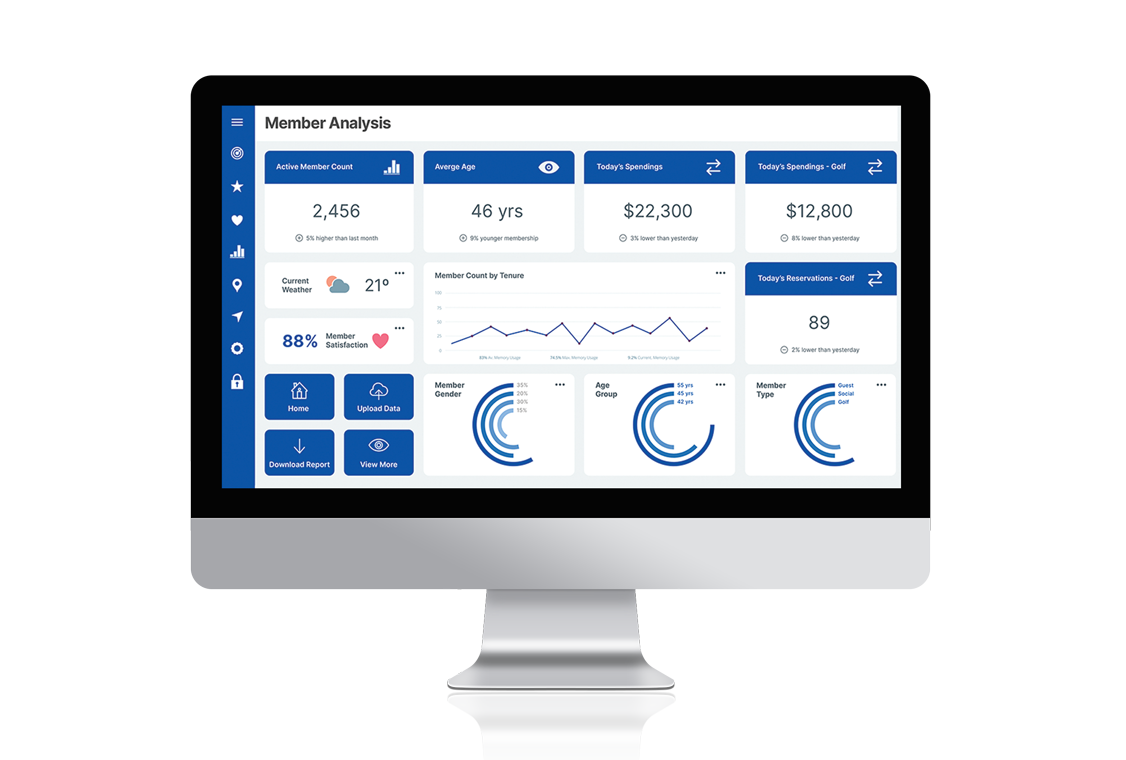In today’s fast-paced business landscape, organizations are constantly seeking ways to stay ahead of the competition and make informed decisions. One of the most effective ways to achieve this is by leveraging business intelligence (BI) dashboard tools. These tools provide a centralized platform for collecting, analyzing, and visualizing data from various sources, enabling businesses to gain valuable insights and make data-driven decisions.

What is a Business Intelligence Dashboard?
A business intelligence dashboard is a visual representation of key performance indicators (KPIs) and other important metrics that provide a snapshot of an organization’s performance. It is a customizable platform that allows users to create personalized views of their data, track progress towards goals, and identify areas for improvement. BI dashboards can be used to monitor and analyze various aspects of a business, including sales, marketing, finance, and operations.
Benefits of Business Intelligence Dashboard Tools
The benefits of using business intelligence dashboard tools are numerous. Some of the most significant advantages include:
- Improved Decision Making: BI dashboards provide users with real-time data and insights, enabling them to make informed decisions quickly and effectively.
- Enhanced Visibility: Dashboards provide a single view of an organization’s performance, making it easier to track progress and identify areas for improvement.
- Increased Efficiency: Automating data collection and analysis saves time and reduces the risk of human error.
- Better Collaboration: BI dashboards facilitate collaboration among teams by providing a shared view of data and objectives.
- Competitive Advantage: Organizations that use BI dashboards are better equipped to respond to changing market conditions and stay ahead of the competition.
Types of Business Intelligence Dashboard Tools
There are various types of business intelligence dashboard tools available, each with its own unique features and functionality. Some of the most popular types include:
- Cloud-Based Dashboards: Cloud-based dashboards are hosted online and can be accessed from anywhere, making them ideal for organizations with remote teams or multiple locations.
- On-Premise Dashboards: On-premise dashboards are installed on an organization’s servers and are typically more secure than cloud-based options.
- Mobile Dashboards: Mobile dashboards are designed for use on mobile devices and provide users with on-the-go access to their data.
- Self-Service Dashboards: Self-service dashboards allow users to create their own custom views and reports without requiring IT support.
Popular Business Intelligence Dashboard Tools
Some of the most popular business intelligence dashboard tools include:
- Tableau: Tableau is a leading provider of data visualization software that allows users to connect to various data sources and create interactive dashboards.
- Power BI: Power BI is a business analytics service by Microsoft that enables users to create interactive visualizations and business intelligence reports.
- QlikView: QlikView is a business intelligence platform that allows users to create interactive dashboards and reports using a variety of data sources.
- Sisense: Sisense is a cloud-based business intelligence platform that provides users with a range of tools for data analysis and visualization.
Best Practices for Implementing Business Intelligence Dashboard Tools
Implementing business intelligence dashboard tools requires careful planning and execution. Some best practices to keep in mind include:
- Define Clear Objectives: Clearly define the objectives and goals of the dashboard project to ensure that it meets the needs of the organization.
- Choose the Right Tool: Select a dashboard tool that meets the needs of the organization and is compatible with existing systems and data sources.
- Involve Stakeholders: Involve stakeholders from various departments to ensure that the dashboard meets their needs and provides value to the organization.
- Provide Training and Support: Provide users with training and support to ensure that they can effectively use the dashboard and get the most out of it.
Frequently Asked Questions (FAQs)
- What is the difference between a business intelligence dashboard and a report?
A business intelligence dashboard is an interactive platform that provides a real-time view of an organization’s performance, while a report is a static document that provides a snapshot of data at a particular point in time. - Can I create a business intelligence dashboard without technical expertise?
Yes, many business intelligence dashboard tools are designed for non-technical users and provide easy-to-use interfaces for creating custom dashboards. - How do I ensure the security of my business intelligence dashboard?
Ensure that your dashboard is hosted on a secure server, use encryption to protect data, and implement access controls to limit user access to sensitive data. - Can I integrate my business intelligence dashboard with other systems and tools?
Yes, many business intelligence dashboard tools provide integration with other systems and tools, such as CRM, ERP, and marketing automation platforms.
Conclusion
Business intelligence dashboard tools are a powerful way to unlock insights and drive data-driven decision making in organizations. By providing a centralized platform for collecting, analyzing, and visualizing data, these tools enable businesses to gain a deeper understanding of their performance and make informed decisions. With a range of tools and options available, organizations can select the one that best meets their needs and provides the most value. By following best practices and implementing a business intelligence dashboard tool effectively, organizations can reap the benefits of improved decision making, enhanced visibility, and increased efficiency. Whether you’re a small business or a large enterprise, a business intelligence dashboard tool can help you achieve your goals and stay ahead of the competition.
Closure
Thus, we hope this article has provided valuable insights into The Power of Business Intelligence Dashboard Tools: Unlocking Insights for Data-Driven Decision Making. We hope you find this article informative and beneficial. See you in our next article!